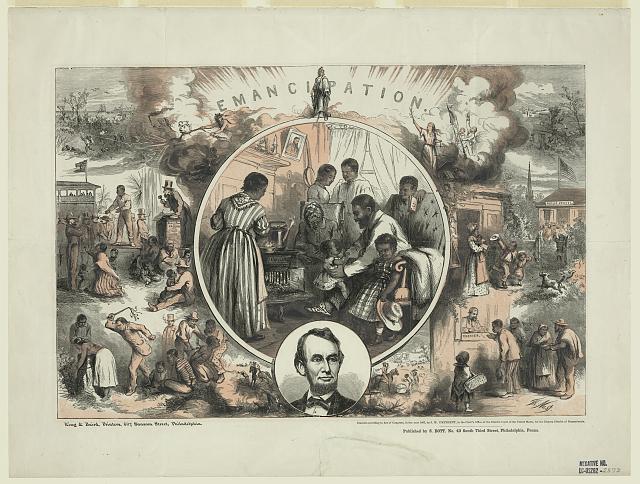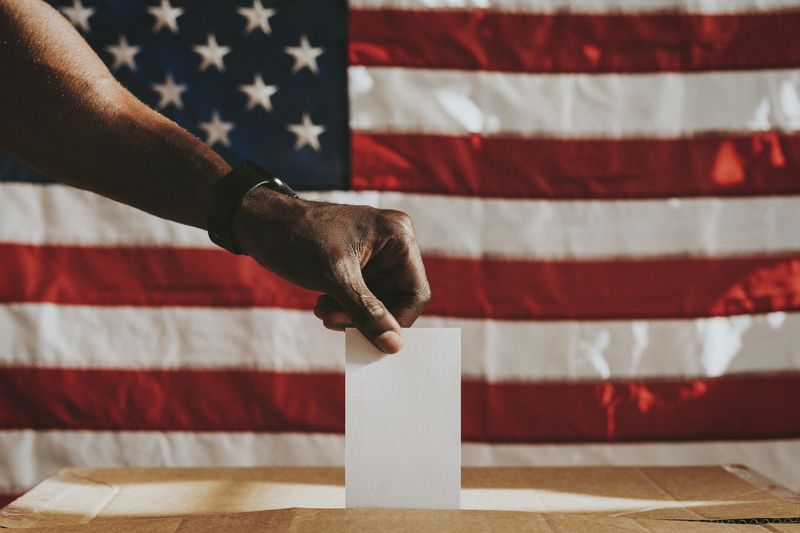Black Code and Prison Labor: The 13th Amendment and Modern Day Slavery
By Melisha Daniels - November 5, 2022To Blacks in America, Black Code means the unspoken code of the collective. Rules such as don't wear white after Labor Day, don't put raisins in the potato salad and don't say nothing about my momma embody Black Code that must not be broken.
For the African-American diaspora, Black Code has come to be known as those things that if you know, you know. And if you don't know - but need to know - you will soon find out.
However, when it comes to American politics, Black Code takes on a whole new meaning. In post-Civil War era, Black Code has referred to restrictive measures or laws meant to put a limit on the Constitutional rights of Black Americans and uphold the nation's longest living institution - Slavery.
One such Black Code is the 13th Amendment of the U.S. Constitution.
The 13th Amendment
Neither slavery nor involuntary servitude, except as a punishment for crime whereof the party shall have been duly convicted, shall exist within the United States, or any place subject to their jurisdiction.
Ratified in 1865, the 13th Amendment was the 1st change to the U.S. Constitution since 1804. Although this section of the nation's ruling document is most often referred to as the one that abolished slavery, the amendment also provided a pathway for a form of legalized slavery - Prison Labor.

The Bureau of Statistics puts the number of U.S. citizens incarcerated at year end 2020 at 1,691,600. Systemic racism, purposefully discriminatory laws and disparate sentencing practices mean that despite being 12% of the American population, Black men and women make up about 35% of those incarcerated. While the prison and jail work assignments are applicable to all prisoners, the racial inequality of the U.S. criminal justice system means Black people are disproportionately affected by the modern slavery practice of prison labor.
Modern Day Slavery
Modern day slavery describes a situation where a person is exploited for financial gain. And he or she cannot refuse this type of treatment because of threats of violence or retaliation. And prison labor is just that. Whether it be as a field hand in Texas or fighting fires in California, every able-bodied inmate must perform some type of work assignment.
An article published by PrisonPolicy.org explains that prisoners in some states are given no compensation for the work they do. While those in compensated state facilities receive between $.13 cents and $1.41 per hour. In addition, prisoners who refuse to participate in work assignments are often punished by loss of visitation, loss of phone privileges or indefinite solitary confinement.
To put prison labor compensation in perspective, for those inmates that do receive wages, the average yearly salary for a prisoners' labor is $1,081.60. And while there are no absolute figures on the amount of labor provided by inmates in U.S. prisons, a report titled Captive Labor: Exploitation of Incarcerated Workers estimates that prison workers make approximately $2Billion worth of products, annually. And they perform about $9Billion in maintenance related services for prison upkeep.
On December 18, 1865, the 13th Amendment was adopted and ratified by the U.S. Constitution. Meaning, month shy of 157 years ago slavery was abolished in America. As of November 5, 2022, the United States continues to capitalize from the modern day enslavement of its' citizens through Prison Labor.





